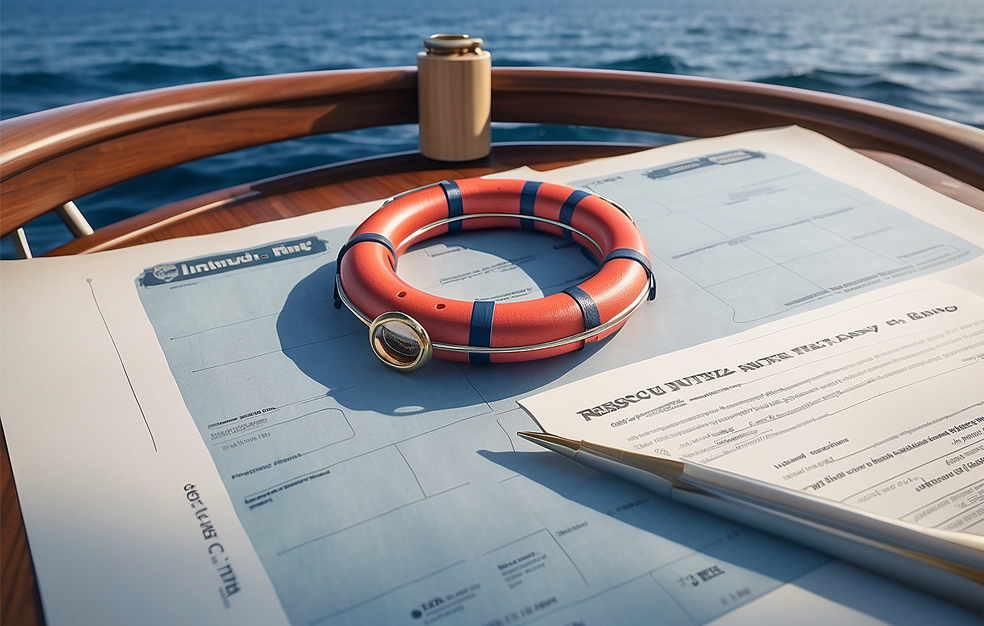
- Blog
-
by Admin
Beautiful azure waters, top-notch marinas, and fantastic maritime infrastructure are all key players in propelling the UAE yacht hubs to the forefront. If a user is an inhabitant longing for a weekend at sea or an investor looking into the flourishing marine leisure industry, purchasing and registering a boat in the UAE may prove to be rather complicated, due to the legal, procedural, and regulatory hurdles. A thoroughly elucidated guide is here to walk you through the whole procedure, step by step.
Understanding the UAE marine regulation framework
The yacht documentation and ownership process in the UAE is governed by Federal Maritime Law No. 26 of 1981 and its amendments, along with certain specific regulations of each emirate, the most notable among them being the regulations of Dubai Maritime City Authority (DMCA) and Federal Transport Authority (FTA), now part of the Ministry of Energy and Infrastructure. These agencies are responsible for vessel registrations, enforcing safety and compliance standards, and providing advice on ownership rights.
Yacht ownership in the UAE is available to foreign people, although there are variations provided to UAE-flagged yachts vs foreign-flagged boats, notably with respect to commercial usage and mooring privileges.
Choosing the Proper Yacht
Considerations that a buyer should look into before the purchase of a boat:
- Purpose of the yacht: Is it for private use, charter work, or commercial purposes?
- Size and type: The maintenance and registration of superyachts, motor yachts, catamarans, and sailing boats vary significantly.
- New or used: Most new purchases are through licensed dealers and shipyards; however, a used yacht requires in-depth due diligence and survey procedures.
It is advisable to engage a marine surveyor and maritime lawyer throughout the process of acquisition, especially for used yachts.
Yacht Purchase Legal Aspects
In the UAE, when the sale and purchase of a boat takes place, it must be put in writing in the form of a Bill of Sale, which should contain:
- Complete information of the buyer and seller
- Description of the yacht (dimensions, manufacturer, year, engine information)
- Price and conditions of agreement
- Warranties and liabilities
- Terms of payment and taxes
- The contract must be notarised, and both parties are urged to have it examined by their lawyers.
Buyers should also verify whether there are any encumbrances, legal claims, or outstanding debts associated with the vessel. The seller must provide proof of ownership, evidence of VAT payment, and clearance certificates from the relevant authorities in the event of an earlier registration.
The yacht registration process in the UAE is obligatory for vessels greater than 10 meters in length in compliance with UAE legislation. The primary registration kinds are:
- Private Registration: for personal usage and enjoyment
- Commercial Registration: for boats used for charter, events, or business
- Registration is typically handled by the Ministry of Energy and Infrastructure, or in Dubai, by the DMCA.
Documents necessary for registration:
- Bill of Sale or evidence of ownership
- Owner’s original passport/Emirates ID
- Proof of VAT payment (if applicable)
- Manufacturer’s certificate or earlier registration certificate
- Seaworthiness Survey Report
- Hull Identification Number (HIN)
- Insurance Certificate
- Power of Attorney (if appropriate)
Once approved, the authorities will inspect the boat and, upon completion of all requirements, will issue the Certificate of Registry and UAE flag registration.
VAT and Import Duties
5% VAT is paid on the purchase value of yachts imported into the UAE, unless the vendor is VAT-exempt. If the sale is done in the UAE with a dealer, VAT is normally levied on the invoice.
Temporary import permissions may be needed for foreign-flagged boats entering UAE waters. If your boat is being kept moored long-term in the UAE, it is generally advisable to register it under the UAE flag to avoid potential complications.
Insurance and Compliance
Insurance is necessary for all registered boats and must cover third-party liability, crew (if applicable), and damage. Most insurers request:
- Annual surveys (for bigger boats)
- Proof of professional crew (for commercial boats)
- Compliance with marine safety equipment regulations
Yachts must also be equipped with adequate navigation, safety, and communication equipment recognised by the UAE maritime authorities..
Conclusion
Purchasing and registering a boat inside the UAE is definitely a profitable but legally structured undertaking. With knowledge of the law, attention to detail, rigorous paperwork preparations, and compliance with registration requirements, the voyage may be made simpler from any pier to the open sea. Its usage, whether individually or professionally, may therefore make boat ownership in the UAE a pleasurable and glamorous experience, provided it is based on the correct legal framework.
